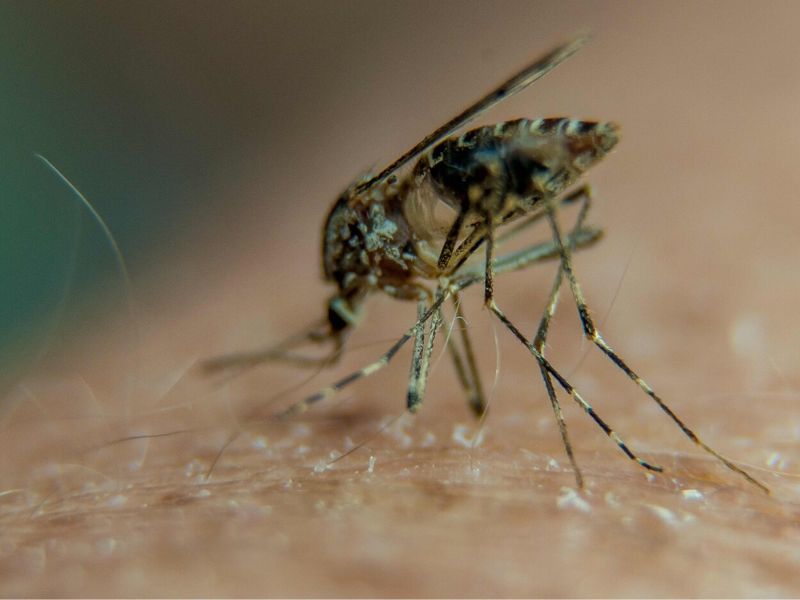Kenya to deploy genetically modified mosquitoes to curb malaria

The initiative aims to utilise advanced genetic techniques, specifically gene drive technology to stop the spread.
The Kenya Medical Research Institute (KEMRI) in partnership with Imperial College London will introduce Genetically Modified (GM) mosquitoes in Kenya, to control the spread of malaria.
The initiative aims to utilise advanced genetic techniques, specifically gene drive technology to stop the spread.
More To Read
- WHO warns of rising malaria threat in Kenya as mosquitoes develop insecticide resistance
- Kenya’s malaria cases jump 27 per cent to 4.1 million in 2025, WHO report reveals
- Malaria fight at risk as drug resistance spreads despite new tools saving millions
- Malaria: Drug resistance and underfunding threaten progress towards eliminating killer disease
- Study warns climate shifts could widen malaria risk across Africa
- Taking down malaria’s bodyguards: Scientists target parasite’s secret defence system
The Centers for Disease Control (CDC) has engineered GM mosquitoes designed to carry two specific genes.
One includes a self-limiting gene, which prevents female mosquito offspring from surviving to adulthood, and a fluorescent marker gene, which glows under red light, allowing researchers to identify GM mosquitoes in the field.
These GM mosquitoes are produced in a laboratory and lay eggs containing both the self-limiting and fluorescent marker genes.
When these eggs are released into designated areas, they hatch and develop into adult mosquitoes that mate with wild females, passing on the modified genes.
The process is expected to significantly reduce the population of Aedes aegypti mosquitoes, which are the key vectors of malaria.
However, the CDC pointed out that releasing GM mosquitoes is not intended to stop an ongoing disease outbreak. Instead, GM mosquitoes are meant to help prevent disease outbreaks.
“Releasing GM mosquitoes over several months can reduce the number of a specific mosquito species such as Ae. Aegypti. By reducing numbers of mosquitoes that can spread germs, it can also help reduce the chance of an outbreak," the CDC said.
Advanced technological solutions
During a recent meeting, KEMRI acting Deputy Director of Research and Development Martin Bundi emphasised the urgent need for advanced technological solutions to tackle malaria.
 Acting Deputy Director of Research and Development at KEMRI Dr. Martin Bundi. (Photo: KEMRI)
Acting Deputy Director of Research and Development at KEMRI Dr. Martin Bundi. (Photo: KEMRI)
“Malaria is an endemic disease in this country, and there is a need to control it. It is, therefore, important to embrace new technology that can assist in curbing it,” Bundi said.
He expressed confidence in Gene Drives and acknowledged the contributions of the entomology and vector control departments. He also highlighted KEMRI’s openness to collaborations that enhance vector control and improve public health.
Professors Christophides George and Windbichler Nikolai from Imperial College also noted that malaria remains a pervasive threat in Kenya, necessitating the adoption of innovative control measures.
Prof. Christophides George said the Imperial College has made significant progress in developing genetically modified mosquitoes, which are now ready for field testing in Kenya.
He lauded Kenya for its conducive environment for such research, citing the robust intellectual capacity of institutions like KEMRI and the presence of a genetic modification (GM) framework.
"The GM mosquitoes have shown promising results in laboratory settings, and the next step is to evaluate their effectiveness in the field," he said.
Acting Deputy Director of Biotechnology Programs at KEMRI, Damaris Matoke-Muhia, mentioned that the institute has ample land suitable for the large-scale field tests required by Gene Drives.
She emphasised the partnership extension into capacity-building initiatives, including exchange programmes and training opportunities for students and scientists at the KEMRI Graduate School (KGS).
Top Stories Today
















































